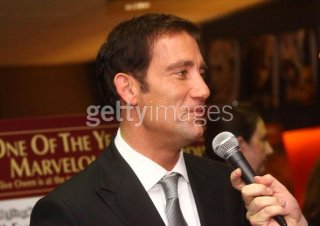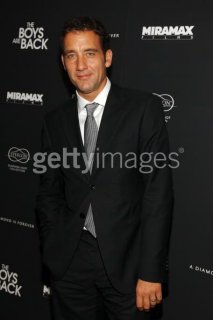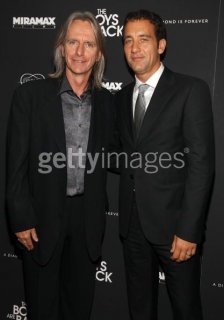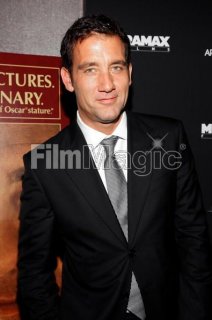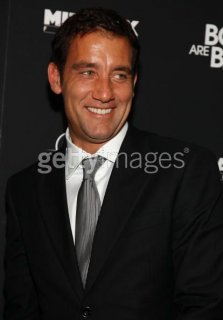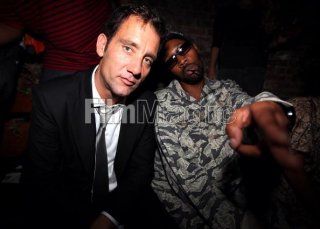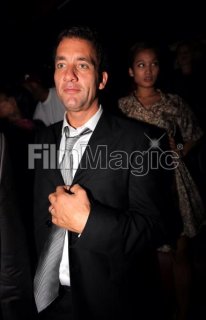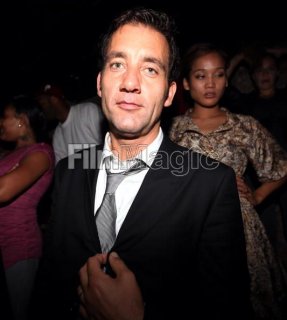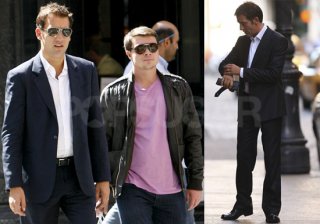-
The F/W 2026.27 Show Schedules...
New York Fashion Week (February 11th - February 16th) London Fashion Week (February 19th - February 23rd) Milan Fashion Week (February 24th - March 2nd) Paris Fashion Week (March 2nd - March 10th)
You are using an out of date browser. It may not display this or other websites correctly.
You should upgrade or use an alternative browser.
You should upgrade or use an alternative browser.
Clive Owen
- Thread starter starburst
- Start date
FrenchCactus
Vogue Paris Intern
- Joined
- Mar 27, 2006
- Messages
- 2,744
- Reaction score
- 0
FrenchCactus
Vogue Paris Intern
- Joined
- Mar 27, 2006
- Messages
- 2,744
- Reaction score
- 0
gettyimages
Caption: NEW YORK - SEPTEMBER 23: Actor Clive Owen seen during Sean Pecas Birthday Celebration at Pink Elephant on September 23, 2009 in New York City. (Photo by Shareif Ziyadat/FilmMagic)
Caption: NEW YORK - SEPTEMBER 23: Actor Clive Owen seen during Sean Pecas Birthday Celebration at Pink Elephant on September 23, 2009 in New York City. (Photo by Shareif Ziyadat/FilmMagic)
Attachments
Attachments
Being an actor balancing a family and a career can be difficult. Just ask Clive Owen. Owen tries to spend as much time with as possible with his wife, Sarah-Jane Fenton, and two daughters, Hannah, 12, and Eve, 10 when he’s not shooting a film.
While promoting his new movie, The Boys Are Back, in which he plays a widowed father, Owen talked about how no matter how much time he spends with his family, it can still be hard.
He said: “No matter how much time I spend at home, there’s always this thing underneath - that there’s a possibility I might disappear again and do a movie.
“Whereas most fathers, even if they’re not around that much, there’s a regular routine.”
backseatcuddler
Anck_Su_Namun_x
Member
- Joined
- Jul 18, 2008
- Messages
- 774
- Reaction score
- 0
tixola
Active Member
- Joined
- Dec 26, 2005
- Messages
- 1,861
- Reaction score
- 3
zimbioClive Owen squeezes into the backseat of a cab after leaving the Ivy Club in London. October 28, 2010


Melancholybaby
Well-Known Member
- Joined
- Aug 25, 2011
- Messages
- 14,225
- Reaction score
- 2,490
Melancholybaby
Well-Known Member
- Joined
- Aug 25, 2011
- Messages
- 14,225
- Reaction score
- 2,490
^Interview
wmagazine.com
Lynn Hirschberg: Did you act when you were a child? Were you in school plays?
Clive Owen: I played the Artful Dodger in Oliver! when I was about 13. It was the musical version. I didn’t sing that well, but I gave it a go. I was just given the part, thrown into it, and I came out and said, “I have to do this. I’ve got to be an actor.” I was unwavering from that moment on.
You did youth theater in your hometown, the industrial city of Coventry, in England, and then you auditioned for RADA, the *Royal Academy of Dramatic Art.
I’d stopped acting a bit, and I’d been unemployed for a couple of years, and I suddenly realized, If I don’t get into a drama school, it ain’t gonna happen. So I only applied to the one—and that was RADA. You audition, and they choose only 18 people a year. Getting into RADA for a kid like me, coming from where I came from, was the beginning of the whole thing, really.
At RADA, they concentrate solely on theater. They are almost anti-television and film.
After three years there, I still had no idea what a movie set looked like. If you got a part in a TV show, it was completely alien. But then, I had no burning ambition to get into films or TV. All I wanted to do was plays.
You met your wife, Sarah-Jane Fenton, while acting in a play.
Yes. After drama school I did a seven-month tour of Europe performing in Romeo and Juliet. I played Romeo. I was at the first rehearsal, thinking, I wonder what Juliet is going to be like, and she came in. She had a corduroy jacket on and was carrying a pile of secondhand books, and her glasses were falling off. I kind of fell in love at that moment.
Wow! Did people think you had enormous chemistry in the love scenes?
When we did the big balcony scene, I always thought we had this amazing connection. Much later, she admitted to me she couldn’t even see me because she’s so shortsighted, and she didn’t wear her glasses onstage [laughs]. At the time, I didn’t think it would be a great idea if Romeo and Juliet got together, so we didn’t do anything about our relationship until halfway through the run. We finally got together in Belfast, and now we have two daughters.
The first time I saw you was in Croupier—a fantastic movie—in which you play a somewhat mysterious, utterly compelling man who works in a private casino in London. Despite your platinum hair, you were dark in a very attractive way. That ability to portray a mix of toughness and sexuality became a kind of Clive Owen hallmark—in Closer, for which you were nominated for an Academy Award, you were an irresistible bad boy.
Well, I was in the play version of Closer too, and when we did the play, people walked out almost every night [laughs]. They seemed to find me repellent.
Don’t be ridiculous. Closer was full of intense sex scenes—and so is Hemingway & Gellhorn, your movie for HBO, which airs May 28. Do you prefer doing sex scenes or scenes in which you die?
It’s much harder to do a death scene. You’ve got to do it convincingly, and it’s a huge thing to die [laughs]. Sex scenes are only hard if there’s no narrative conveyed through the sex scene. In the Hemingway film, the sex scenes have a story going through them. It’s part of who these people are and what they are.
In the movie, the aspiring journalist Martha Gellhorn meets Ernest Hemingway—who is married—in Key West in 1936. As they begin their affair, he encourages her to become a war correspondent. They eventually marry, and for four tempestuous years travel the world in search of war zones. Did you know about Hemingway before you started this project?
As a writer, he doesn’t have the same impact in England as he does in America. I spent five, six months doing research. I went to his house outside Havana, Cuba. The incredible thing about the house, which his wife donated to the Cuban government, is that the moment he died, they locked the place down. They don’t usually let people inside, but they set it up for me. I got in Hemingway’s home, and everything is still there. His clothes are in the closet. His books. His typewriters. His coats are still hanging in the closet just as he left them.
Did you try them on? Did you read his books?
Everything! I tried on his boots. I don’t think I’ve ever done anywhere near as much research for any part. It was hugely enjoyable to walk around hearing Hemingway’s voice in my head.
I liked the way you-as-Hemingway wrote. He typed standing up, his typewriter placed on a tall chest of drawers. And he attacked the keys with a great intensity.
We wanted the writing to look virile. After writing a page, *Hemingway would let it float to the ground. He never crumpled pages—he believed that if you crumpled them, you’d be insane in a year. He could also drink all night—*legendary amounts—and then every morning at 6, he’d be up and would write for six hours straight. After that, he’d start drinking again.
And you did the same?
Absolutely! [Laughs.] Research!
wmagazine.com
Similar Threads
- Replies
- 677
- Views
- 39K
- Replies
- 72
- Views
- 43K
Users who are viewing this thread
Total: 1 (members: 0, guests: 1)







